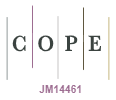Self-formation, human condition and aesthetic dimension
DOI:
https://doi.org/10.5585/eccos.n43.7480Keywords:
Self-formation. Human Condition. Aesthetics. Complex Thought. Tripolar Theory.Abstract
This article, of bibliographical nature, deals with self-formation and its relationship with the human condition and the aesthetic dimension. It seeks todemonstrate the understanding of the process of self-formation, identified as a whole set composed of heterogeneous and intertwined parts, which encompass the first processes of socialization, the school dynamics and everything that the subject learns by himself, with other people and in sociopolitical-cultural processes. The theoretical approach lies on the complex thought of Edgar Morin and on the tripolar theory of Gaston Pineau. Self-formation is understood as learning impregnated by culture and the development of an aesthetic living knowledge is considered as the main foundation of the human condition itself.Downloads
Download data is not yet available.
Downloads
Published
2017-06-12
How to Cite
ALMEIDA, Cleide Rita Silvério de; ARONE, Mariangelica. Self-formation, human condition and aesthetic dimension. EccoS – Revista Científica, [S. l.], n. 43, p. 97–113, 2017. DOI: 10.5585/eccos.n43.7480. Disponível em: https://periodicos.uninove.br/eccos/article/view/7480. Acesso em: 1 sep. 2024.
Issue
Section
Dossiê Temático: Formação e AutoFormação






